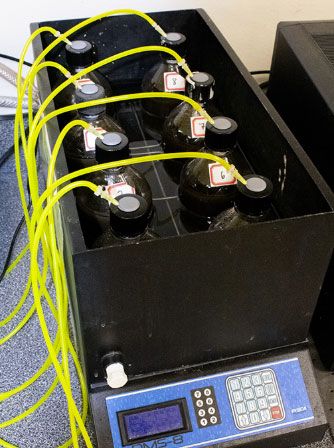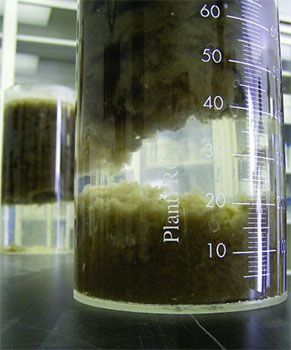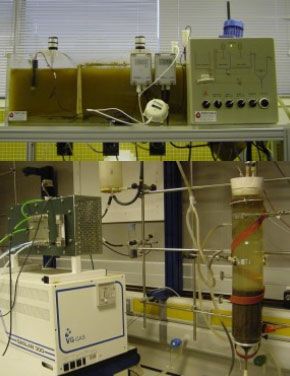For industries handling toxic, hazardous, or recalcitrant wastewater, treatability studies are critical to validate treatment designs, ensure regulatory compliance, and optimize system performance. These lab-based assessments provide actionable insights into biodegradability, inhibition risks, and advanced treatment options, empowering stakeholders to make informed decisions.
Why Conduct Treatability Studies?
Treatability studies simulate biological and chemical treatment processes on wastewater samples to confirm their effectiveness. By analyzing the wastewater's impact on microbial colonies and its amenability to treatment, these studies mitigate risks, optimize designs, and provide proof of concept for challenging streams, such as those from chemical manufacturing, pharmaceuticals, or landfill leachate.
Core Components of Treatability Studies
Biodegradability Studies
Biodegradability studies assess how effectively microorganisms can degrade organic matter in wastewater. Using closed-system respirometers, these studies measure cumulative oxygen uptake over time to determine:
- The degree of biodegradability of the waste stream.
- The treatment time required for effective degradation.
This data helps engineers design systems with appropriate retention times and treatment capacities, ensuring efficient pollutant removal.

Inhibition Assessments
Inhibition studies evaluate whether toxic or hazardous compounds in wastewater impair microbial activity in activated sludge bio systems. A typical approach involves an eight-bottle respirometric study, where unacclimated biomass from a publicly owned treatment works (POTW) is exposed to wastewater at varying chemical oxygen demand (COD) to mixed liquor volatile suspended solids (MLVSS) ratios (e.g., 0:3, 0:4, 0:5). Key analyses include:
- Oxygen Uptake Rate (OUR): Detects acute inhibition of heterotrophic bacteria.
- Chemical Characterization: Quantifies removal efficiencies for biochemical oxygen demand (BOD), COD, and total Kjeldahl nitrogen (TKN).
Biomass is prepared by washing approximately three gallons of POTW-sourced sludge, centrifuging, and resuspending in dechlorinated tap water, following Standard Methods for the Examination of Water and Wastewater (24th Edition). Procedures align with Respirometry for Environmental Science and Engineering (Young and Cowan, 2004).

Nitrification Inhibition Assessments
Nitrification, the biological conversion of ammonia to nitrate, is sensitive to environmental changes and inhibitory substances. Treatability studies identify whether ammonia-oxidizing bacteria (AOB), nitrite-oxidizing bacteria (NOB), or both are inhibited by the wastewater. These assessments also explore:
- Whether nitrifier bioaugmentation can restore nitrification.
- If environmental conditions support a stable nitrifying population.
This ensures robust ammonia removal in treatment systems, critical for meeting stringent discharge regulations.
Advanced Oxidation Processes (AOP)
For wastewater with recalcitrant compounds or low biodegradability, advanced oxidation processes (AOP) can enhance treatment. AOPs are tested as pretreatment to improve biodegradability or as tertiary treatment to remove persistent COD. Lab-scale screening includes:
- Chlorination
- Fenton's reaction
- Ozone
- Peroxide
- UV-based processes
Testing identifies the most effective AOP based on wastewater characteristics, flow rates, and target contaminants, ensuring tailored solutions for complex streams.
Bench-Scale Reactors
To assess chronic inhibition or gather kinetic data for process scale-up, continuous flow bench-scale reactors simulate activated sludge or aerated lagoon systems. These reactors evaluate:
- The impact of process changes or new waste streams.
- Performance for new wastewater treatment plant designs.
By mimicking full-scale conditions, bench-scale reactors provide reliable data for system optimization and risk mitigation.

Benefits of Treatability Studies
Treatability studies deliver critical advantages:
- Proof of Concept: Validate treatment designs for stakeholders.
- Regulatory Compliance: Ensure discharge standards are met.
- Optimized Design: Enable efficient, cost-effective systems tailored to specific wastewater challenges.
- Risk Mitigation: Identify and address inhibition or treatment limitations early.
Conclusion
Wastewater treatability studies are indispensable for industries managing complex wastewater streams. By combining biodegradability assessments, inhibition studies, nitrification evaluations, AOP screening, and bench-scale reactor testing, these studies provide a comprehensive understanding of treatment feasibility. With rigorous methodologies and advanced testing capabilities, treatability studies ensure reliable, compliant, and efficient wastewater treatment solutions.
Request a Treatability Study Today
Contact us today to discuss your project.
678-514-2100 Contact Ecologix Today